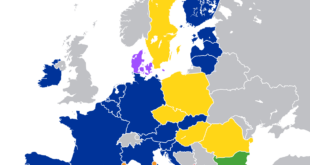- Recently, India has ranked tenth (10th) in Global Cybersecurity Index (GCI) 2020 by ITU (International Telecommunication Union) by moving up 37 places.
- The affirmation came just ahead of the sixth anniversary of Digital India on 1st July.
Important points:
- The US topped (1st), followed by the UK (United Kingdom) and Saudi Arabia tied on the second position together.
- Estonia was ranked third (3rd) in the index.
- India scored a total of 97.5 points from a possible maximum of 100 points, to make it to the tenth position worldwide in the GCI 2020.
- India secured the fourth position in the Asia Pacific region.
- India is emerging as a global IT superpower, asserting its digital sovereignty with firm measures to safeguard data privacy and online rights of citizens.
- The result shows substantial overall improvement and strengthening under all parameters of the cybersecurity domain.
- On the basis of performance on five parameters of cybersecurity, which are,
- Legal measures, technical measures, organisational measures, capacity development, and cooperation.
- The performance is then aggregated into an overall score.
International Telecommunication Union:
- It is the United Nations specialized agency for information and communication technologies – ICTs.
- Founded in 1865 to facilitate international connectivity in communications networks. It is Headquartered in Geneva, Switzerland.
- It allocates global radio spectrum and satellite orbits, develops the technical standards that ensure networks and technologies seamlessly interconnect, and strives to improve access to ICTs to underserved communities worldwide.
- Recently, India got elected as a member of ITU Council for another 4-year term – from 2019 to 2022. India has remained a regular member since 1952.
Challenges:
- Deploying multiple cybersecurity tools reinforces a fragmented and complex security environment that is prone to risks arising from human error.
- Cybersecurity challenges companies face as they shift the majority of their employees to a remote working arrangement in a really short period of time.
- India lacks indigenization in hardware as well as software cybersecurity tools. This makes India’s cyberspace vulnerable to cyberattacks motivated by state and non-state actors.
- India doesn’t have an ‘active cyber defense’ like the EU’s General Data Protection Regulation (GDPR) or the US’ Clarifying Lawful Overseas Use of Data (CLOUD) Act.
SOURCE: THE HINDU,THE ECONOMIC TIMES,MINT
 Chinmaya IAS Academy – Current Affairs Chinmaya IAS Academy – Current Affairs
Chinmaya IAS Academy – Current Affairs Chinmaya IAS Academy – Current Affairs



